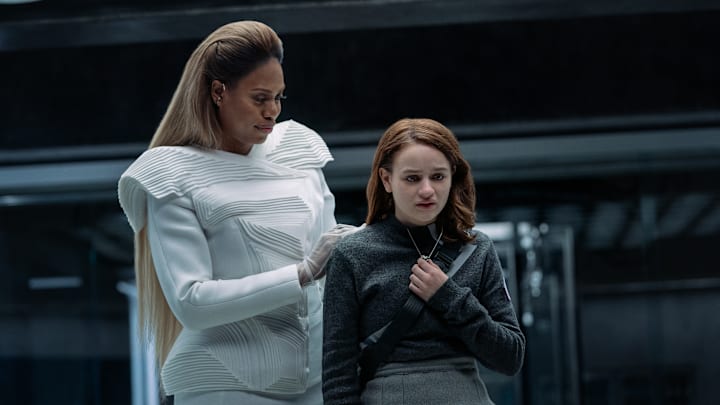In the height of the 2010s, the dystopian future films were all the rage. The Hunger Games, Divergent, and The Maze Runner were three of the biggest franchises that capitalized on the concept and then watched the excitement burn out over time. But, Netflix's original film, Uglies, is clearly trying to recapture that magic. Does the movie succeed in helping to revive this genre?
In Uglies, Netflix success Joey King leads the story as protagonist Tally Youngblood, a fifteen to sixteen-year-old girl on the cusp of finally reaching the life-changing surgery that will make her pretty. The concept of the movie relies on the audience to accept the narrative's world, where everyone on their sixteenth birthday must undergo a physically altering surgery that changes them from their natural look into how the story defines a perfect physical appearance. In this world, the way Uglies continue on with life and strip away discrimination is by having everyone considered to be equally beautiful to avoid the growth of class systems.
However, of course, this surgery has a plot twist that very few know about, which is that once the person has undergone it, the part of their brain that allows them to want to be an individual is basically transformed to make them just another random droid among all the people who can no longer think for themselves. It is basically a nightmare dressed up in fairy lights. In the nature of young adult dystopian franchises, the corrupt government always holds a terrifying secret, so the reveal of this one is not the shock it wants to be.
Uglies relies on an arguably thin plot line, especially in the face of successful franchises, like how The Hunger Games utilizes turning the media against children by throwing them to their deaths, the Districts' desperation to step out of underneath the Capitol's thumb, and the ongoing sense of fighting for power that comes from corrupt leaders.
Joey King and Brianne Tju, who portrays Tally's rebellious friend, Shay, are the heart and soul of Uglies, as Shay wants to prove to Tally that people can exist as they are without having to change their physical appearance. Their friendship is the real core of the story, no matter how much sentimental attachment Tally has to her childhood best friend Peris, or potential love interest David.
Still, as much as Joey King and Brianna Tju may deliver delightful performances as Tally and Shay, crafting a friendship that is the foundation of the story, it is not enough to elevate Uglies to being the new face of dystopian future films.
The overall plot as a whole feels weak, and as hard as Netflix tries to lean into the world-building aspect of the novel it comes from, this movie does not hold the ability to truly embrace the world or the characters inside it.
Given how dystopian future films have not been a huge part of the movie releases of the last decade, not only does Uglies feel out of place in regard to a film release, but this story is not even strong enough to justify existing in the first place, especially when so much about its plot is about the significance of physical appearance and the execution needing to spoon feed the explanation to the audience that physical appearance does not matter.
Instead of a film, or film series, Uglies could have benefitted more from being a dystopian series, which have arguably been more successful in world-building and showcasing the struggles that come from these types of storylines, such as The 100, Snowpiercer, or Silo.
Uglies ends without a strong conclusion, giving way to a potential sequel to continue or finish the story it began. Ultimately, however, while continuing the story might be a good thing for the characters, this is not a film franchise that would have wowed audiences at the box office.
